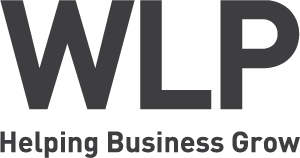It’s a great moment in any company’s story when the business has started to generate enough cash to start reducing your debt. It’s also a pivotal moment because the steps you take next could be crucial in the continued success of your firm. So how do you navigate the tricky terrain of debt repayment when you have borrowed money from multiple sources?
The answer is that you have to be as strategic in your debt repayments as you should be when you are borrowing. It’s all about assessing the cost of your various debts and the risk involved in not repaying them. Before you consider tackling them, however, do remember that you may need to factor VAT and Corporation tax into your projections for future profits.
Don’t be tempted to just pay things off without examining the risks of your borrowing.
For example, you’ll want to consider reducing or repaying in full a personal credit card debt before anything else. That’s because even if you have taken out a 0% interest credit card, that rate will have an expiry and then the interest will increase or you’ll have to pay a fee to move it over to another 0% alternative. Personal Credit card debt matures into high cost and it’s outside the limited liability of your company. The risks to your personal financial stability are too high to ignore, so you should never consider dealing with a debt that carries no personal guarantee liability to you before it.
Try to keep emotion out of it. When loved ones have supported you and helped you make your business dreams a reality, it’s a natural response to want to pay them back with the results of your success. But when you have a personal loan with a financial institution that carries interest and could put you in trouble if repayments aren’t made, it’s prudent to deal with that first.
Take a look at our table and work out where your debts fall in the cost and risk sections then take a broad view. After all, you’ve come this far and the future is looking bright. A strategic and prudent debt repayment plan will have a real impact on what happens next.
| Type of Finance | Cost | Risk |
|---|---|---|
| Personal Credit Cards (perhaps 0% rate) |
High | These will mature into high cost. Outside the limited liability company. |
| Personal Loans | High Medium |
Trouble if payments are not made. Increased risk as outside limited liability. |
| Loans and purchase finance | High Medium |
Trouble if payments are not made. Risk is higher if there is a personal guarantee. |
| Overdrafts | High Medium |
Can be called at any time by the provider. May be as a result of the institutions policy on type of business not your performance. |
| Invoice Finance | High Medium |
Can reduce limits on customers putting the amounts lent at risk. Will recover unpaid invoices. |
| 2nd Mortgages | High Medium |
Trouble if payments are not made. Risk higher if there is personal guarantee. More easily triggered as less leeway on reduction in the value of the asset. |
| Asset Leases (these include VAT) |
Medium | Recover the asset if payments are not made. Risk higher if there is personal guarantee. |
| Asset HP Including Cars (VAT already paid) | Medium | Recover the asset if payments are not made. Risk higher if there is personal guarantee or recovery clauses. |
| Secured Loans Including Property Mortgages | Low | Trouble if payments are not made. Risk higher if there is personal guarantee |
| Loans From Family & Friends | What is agreed? |
These are not at risk of withdrawal other than by moral or family pressures |
If you’d like to learn more, please contact enquiry@w-l-p.co.uk.
